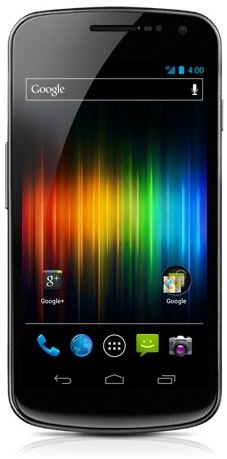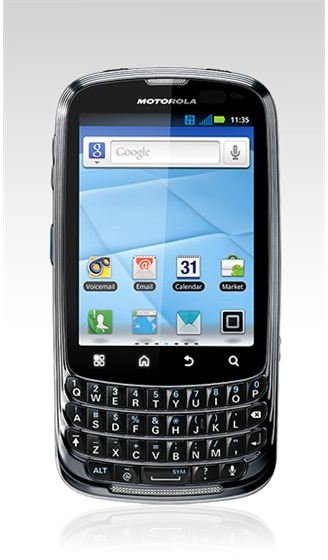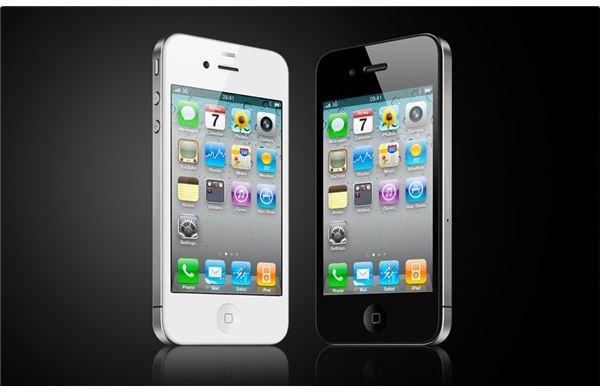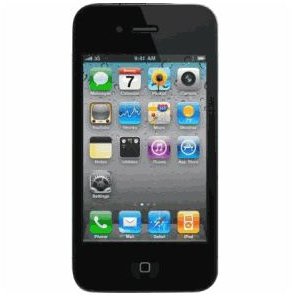iPhone vs Android for Business Users

The chances are good that you now use your smartphone in your everyday business life. Beyond calls and messaging they can offer all sorts of mobile office solutions. You can use them to scan, review and edit documents. You can use them to take notes and track expenses. You can scan in business cards and even take part in online meetings. OK, so let’s assume you’re sold on the idea that a smartphone can help, the next question is which one to buy – iPhone or Android?
While the iPhone and Android smartphones have been selling a storm in the consumer market they are also increasingly making inroads with the business community. RIM has had numerous problems with the traditional business brand of choice – the BlackBerry and Microsoft is still struggling to get off the ground with Windows Phone. Android and iPhone are ready to fill the gap. Let’s compare them from a business perspective.
The Hardware and Pricing
The iPhone is essentially a single design. It is a high quality touch-screen only smartphone. This is because Apple controls the entire process including manufacturing. The iPhone is also typically at the top end of the market in terms of pricing. The phone itself is expensive and so are the plans to go with it.

Android is available on a wide variety of devices from a host of different manufacturers. If you are looking to make the change from a BlackBerry then you’ll be able to find an Android device with the same physical design; the Motorola Admiral for example. There are also many models to choose from that feature full physical QWERTY keyboards that slide out and allow for easy typing.
Android devices are also available at all kinds of price points, from the expensive top end right down to the budget end of the market. In general you will get what you pay for in terms of quality, but for business focused users with no need to record HD video or play the latest 3D games – a budget Android device makes a lot more sense than an expensive iPhone. Even if budget isn’t really a concern you’ll still find a better Android option because there are devices that have been designed specifically with the business market in mind whereas the iPhone is a one-size-fits-all device.
Before we move on there are two other considerations in the hardware department. Most Android phones allow you to remove and replace the battery so you could carry a spare. The iPhone doesn’t, so if you run out of juice you need a power point. Android phones also generally support removable storage in the shape of microSD cards so you can quickly swap them in and out to transfer a lot of files or to increase your storage capacity. The storage in the iPhone is not removable.
How About the Apps?

There are a few things to consider when it comes to apps. For a start, the iPhone offers slightly more apps than Android, but both offer hundreds of thousands of apps and the good business apps tend to be available on each platform.
In general, apps are more expensive on the iPhone and there are a higher proportion of free apps in the Android Market. This is because the Android platform is more open and that is a double-edged sword. With no quality control or approval process there is a higher chance that malware, or just poor quality apps, will be available in the Android Market. Apple vet all the apps in the App Store, but they also sometimes deny quality apps access if they might compete with an Apple app or offer functionality that Apple don’t approve (they aren’t required to give a reason).
There is one other consideration in the app space. If you intend to develop a company app of some kind then Android is the better choice because you can sideload apps (load app files directly on to the phone). This means there would be no need to distribute your app outside of the company. Android is also more open and therefore it would be easier for developers to integrate existing systems.
Email and Security
In terms of secure email and security in general the BlackBerry still has advantages over both Android and iPhone. However, both platforms now integrate well with Microsoft Exchange. You’ll also find great solutions for data encryption, secure passwords and even remote wiping should a phone be lost or stolen.
The app issue we discussed makes Android slightly less secure than iOS because the likelihood of malware being accidentally downloaded is higher. There really isn’t much else to separate the platforms on in terms of security.
Usability
In terms of usability both Android and iOS are easy platforms to get to grips with. They are designed for the mass consumer market so you’ll find them pretty intuitive to use. The iPhone certainly offers a more uniform experience and it is slightly more accessible. Many Android manufacturers offer their own user interface on top of Android so your experience can vary a bit more.
Choose Your Weapon
As you can see there are advantages and disadvantages to both platforms. Android is the stronger choice in my opinion, but it always depends on your specific needs. One last area worth considering is the carrier. Android is available from all carriers and with a wider choice of plans, iPhone is more limited. For that reason, and a few others we already covered, the Android platform is going to be the more economical choice and in business that’s often enough to decide the argument.
If you have an opinion on which is better for business then post a comment and let us know why you’d pick one over the other.
References
- Google, http://www.google.com/nexus/
- Apple, http://www.apple.com/iphone/
